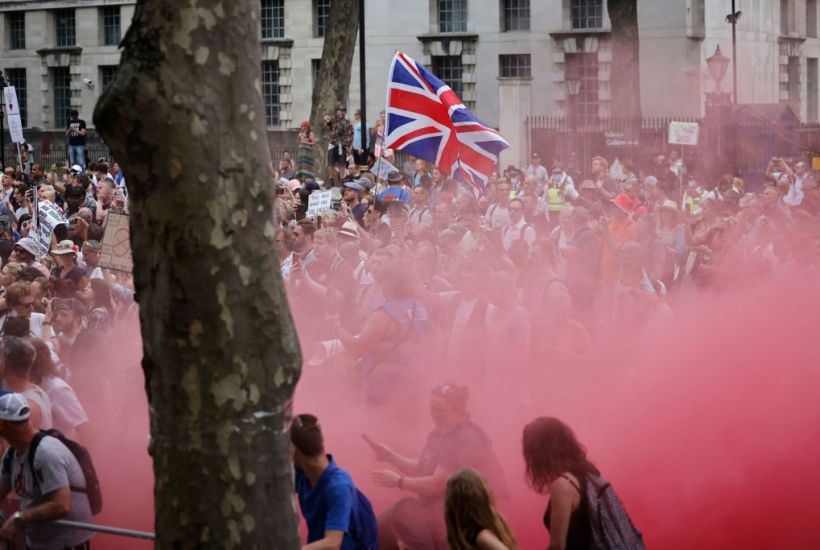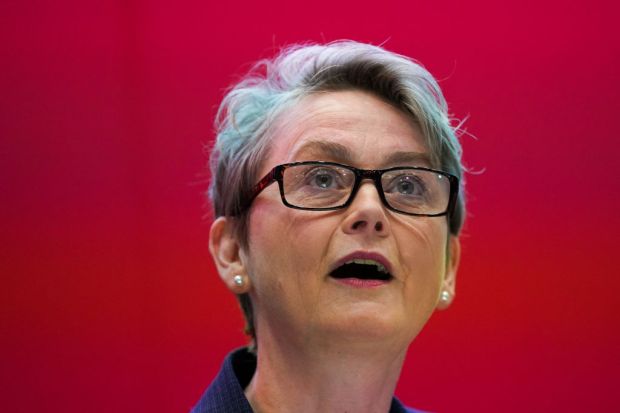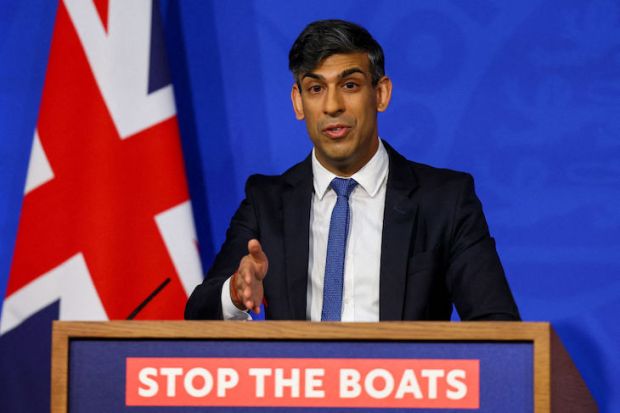Is our society becoming less tolerant and more viscerally tribal? Or is our politics provoking people into committing more angry and desperate acts?
The harassment of BBC Newsnight political editor Nick Watt in Whitehall this week by a group of anti-lockdown protestors recalled the ugly mood that descended on the environs of the Palace of Westminster during the Brexit stalemate of 2016-20.
Back then, it was Remainer MP Anna Soubry who suffered the worst incident of intimidation, while the Leaver Jacob Rees-Mogg was also horribly abused by a pro-EU crowd as he walked home from a key vote with one of his children.
Many of us might have hoped that such a level of polarisation was a peculiarity of how Brexit played out and would by now be securely in the political rear view mirror. But it seems not.
I doubt that Mr Watt will be overly perturbed by what he experienced. Despite his youthful appearance, he is in fact a battle-hardened veteran by modern lobby reporter standards and was a national newspaper Northern Ireland correspondent back when the peace process was in its infancy.
A gaggle of anti-lockdowners jostling him and shouting ‘scum’ will hardly compare to the potential blowback associated with writing stuff that displeased paramilitaries from both sides of Ulster’s sectarian divide and then being seen out on the Falls or Shankill roads, notebook in hand.
But the simplistic associations that went through the minds of his tormentors this week should give us all grounds for concern. In their eyes, BBC staffer equalled pro-lockdown propagandist, equalled a legitimate target – someone from the hated other side. There was zero understanding that journalists are perfectly entitled to cover stories in ways that parts of their audiences may disagree with.
The lockdown debate has come to eclipse Brexit in the polarisation stakes, and there can be little doubt that some of Monday’s demonstrators were acting out of desperation because of the impact remaining restrictions are having on their livelihoods.
But at the heart of the matter – and indeed at the heart of the Brexit wars – is a dispute over what constitutes legitimate democratic decision-making. After the referendum vote, many parliamentarians decided to frustrate Brexit; as the months rolled by, they raised their ambition to cancelling it altogether.
Constitutionally, they were perfectly entitled to do this – even though almost all of them had been elected on manifestos in 2017 that promised to implement the referendum result. It’s the way our representative system works. Legally, parliament can do almost whatever it likes, irrespective of pledges made to the electorate along the way.
So a dangerous feeling of disenfranchisement gripped the ardent Brexiteers in particular, with an aggressive fringe element barracking MPs like Ms Soubry whenever they saw them. This time around, there is a further profound feeling of disenfranchisement among anti-lockdowners. While it may manifest as inchoate rage, at heart it springs from a philosophical instinct about the legitimate limits of state power over the individual.
Yes, polling shows majority support for Boris Johnson delaying the relaxation of remaining restrictions. But what are the legitimate circumstances in which the state should curtail normal civil liberties in a free society?
When 1,000 people a day are dying of a highly infectious plague, that would seem to amount to the kind of emergency that justifies curfews and the like. But when half a dozen a day are dying – and the vast majority of vulnerable people have been vaccinated – the maintenance of controls feels to many like an illegitimate attack on core freedom.
Again, the ability of anyone commanding a parliamentary majority in the British political system basically to do anything they want is being demonstrated. That polling shows that the Prime Minister’s policy commands strong public support surely should not be the end of things when core individual freedoms are being set aside.
It does not feel as if we have had much of a debate about this side of the Covid containment measures either inside Parliament or on the national broadcast media.
The fact that two ‘black swan’ mega-crises have cropped up in quick succession in Brexit and Covid and have radicalised and polarised many people who were previously not especially politically-minded could just be a coincidence. Perhaps we are due a quieter couple of decades in which the fuzziness that exists around what Governments, parliament and individuals are entitled to do in the UK system will not matter much.
Unfortunately, that does not seem at all likely. It looks like a widespread lack of respect for those holding contrary opinions has taken a grip. This can be seen in the ‘milk-shaking’ of Nigel Farage, or the regular bids to hound right-wingers out of public positions or the current attempt to bully companies into not advertising with GB News via the threat of boycotts.
It can be seen too among some anti-lockdowners in the deplorable on-street hounding of the likes of Mr Watt and Chief Medical Officer Chris Whitty. It can also be witnessed in the sheer virulence of the attacks on establishment politicians, from the Prime Minister downwards in the comment sections of certain newspaper websites.
The worrying answer to the question posed at the start of this article is that both propositions appear to be true. As we mark the fifth anniversary of the horrific murder of the Labour MP Jo Cox by a far-right extremist, that is not a happy thought.<//>
Got something to add? Join the discussion and comment below.
Get 10 issues for just $10
Subscribe to The Spectator Australia today for the next 10 magazine issues, plus full online access, for just $10.




















Comments
Don't miss out
Join the conversation with other Spectator Australia readers. Subscribe to leave a comment.
SUBSCRIBEAlready a subscriber? Log in